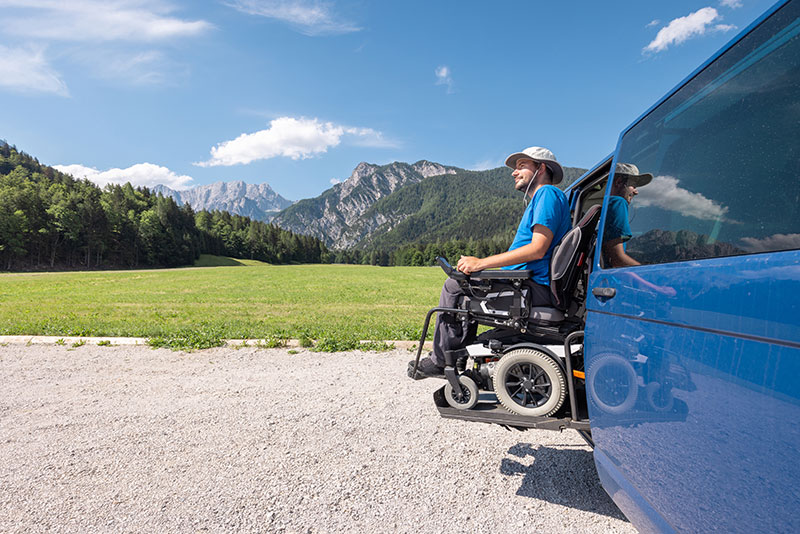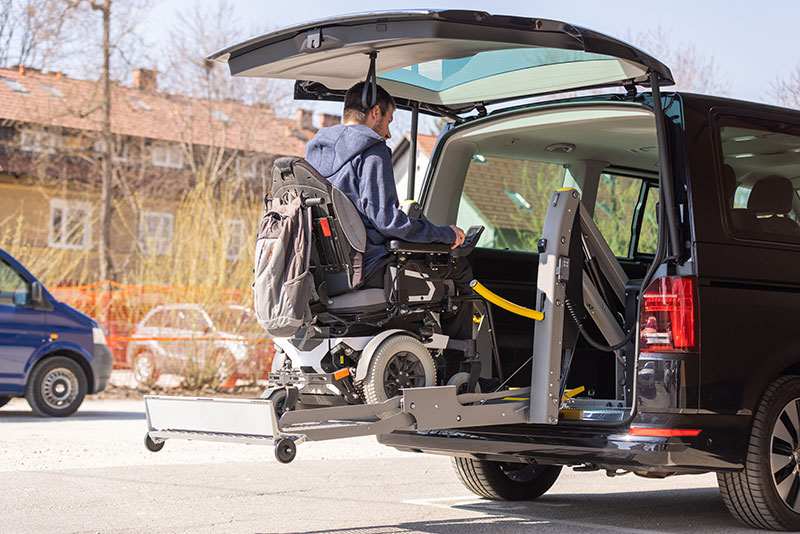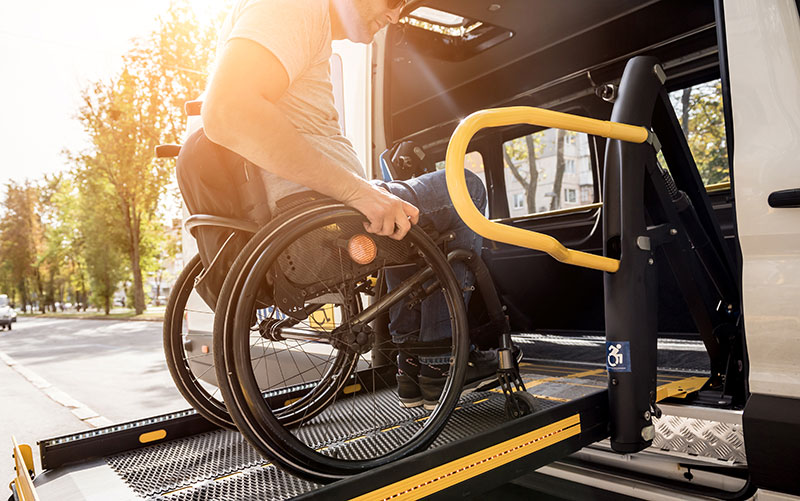Consider This When Selecting an Accessible Vehicle
The ability to get around by vehicle is something that shouldn't be taken for granted. For those living with mobility issues, an accessible vehicle can be the difference between freedom and feeling stuck. The key to everyday mobility is to pick a car, van or truck that suits your needs. Use the following tips to help make the right vehicle decision for you.

What are Your Daily Mobility Requirements
First and foremost, it's important to carefully assess your day-to-day needs. Physical disabilities, such as paralysis or limb impairments, can impact your muscle strength, your ability to walk or your ability to use public transportation easily.
Chronic conditions like arthritis or chronic pain may affect mobility and endurance. You may also have neurological considerations that can impact your spatial awareness, coordination and decision-making while navigating. Whatever your disability, it's helpful to take a realistic approach to whether or not you can drive safely with adaptive equipment.
To evaluate daily mobility needs, you should start by considering both physical and environmental factors. Assess the distance and terrain of typical daily routes that you need to take, including trips to the grocery store, hospital or workplace. Then, research the availability of the accessible infrastructure—and be realistic about personal energy levels.
Consider the type and degree of disability you live with, the need for wheelchair accessibility, ease of entry and exit, and any additional adaptive features required for you to get around successfully. During this process, you can consult healthcare professionals, mobility specialists and experienced vehicle modification experts to determine the most suitable options.
Which Accessible Vehicle Features Parallel Your Needs
By aligning your daily mobility needs with vehicle features, you can enhance your independence, comfort and overall quality of life. Your self-evaluation will determine which features you need in a vehicle for your specific situation, but here are some of the most common features to look for in an accessible vehicle:
- Ramps
- Wheelchair lifts
- Side entry
- Rear entry
- Vehicle transfer seats
- Non-slip surfaces
- Side lip guard
- Low degree of incline
- Cargo space for mobility aids
There are also other modifications you can make to your adapted vehicle or additional features such as:
- Adjustable foot pedals
- Automatic seat and steering wheel adjusters
- Hand pedals
- Large interior door handles
- Large-print dashboard gauges and screens
- Extra-wide doors
- Dashboard-mounted ignition
- Text-to-speech capabilities
- Voice command capabilities
- Self-driving technology
As the tech in vehicles advances, the accessibility features will improve. Keep an eye on these innovations to see if upgrading your vehicle can add to your mobility efficacy. For example, self-driving cars are becoming more commonplace and could prove invaluable for those living with disabilities.
Important Financial Considerations When Purchasing your Next Accessible Ride
It's important to note that accessible vehicles may be costly. This can be due to the increased mass and specialized features of accessible vehicles; they also may be less fuel-efficient than other modified options. When buying a car as someone with a disability, you have to consider these extra costs.

The vehicle you choose should not only be well-suited to your needs, it should also be financially sustainable. Beyond the standard expenses associated with buying a vehicle, you must factor in the potential costs of adaptive modifications or specialized equipment. It's essential to research available grants, subsidies or financial assistance programs that may alleviate the financial expense associated with adapting a vehicle like this.
Think outside the box! Non-profit organizations like Help Hope Live have had wonderful success in helping people with disabilities get the equipment they want through fundraising.
You can look into auto financing to make your accessible vehicle a financially responsible purchase. Many lenders allow you to proactively apply to see if you are qualified for a loan. You can do so with several different lenders to find the best deal—typically without affecting your credit score. Also, remember that insurance premiums may vary based on the modifications and features. Make sure to shop around and work with a financial advisor, if possible, to figure out the best option for your situation.
Think Down the Road About Maintenance Requirements
For long-term vehicle use, you must consider maintenance requirements. Beyond the standard upkeep associated with any automobile, those with adaptive features will need specialized maintenance. Regular inspections of wheelchair ramps, hand controls or other accessibility features are essential to ensure they remain in proper working order. Moreover, maintaining the overall reliability of the vehicle is paramount when you heavily rely on it for daily mobility.

Practical strategies include adhering to manufacturer-recommended maintenance schedules, promptly addressing any issues and establishing a relationship with a trusted mechanic familiar with adaptive vehicle technologies. You should also look into safeguarding your vehicle. Implementing garage door security improvements, such as smart garage openers, can enhance the overall protection of the adapted vehicle, ensuring it remains secure and easily accessible.
Once you've chosen your vehicle to meet your travel, mobility and financial needs, you can drive or ride with confidence. Whether it's running errands, commuting to work or going to social events, the accessibility features enhance your overall sense of control and freedom.
Pre-Register for Abilities Expo Today...It's Free!